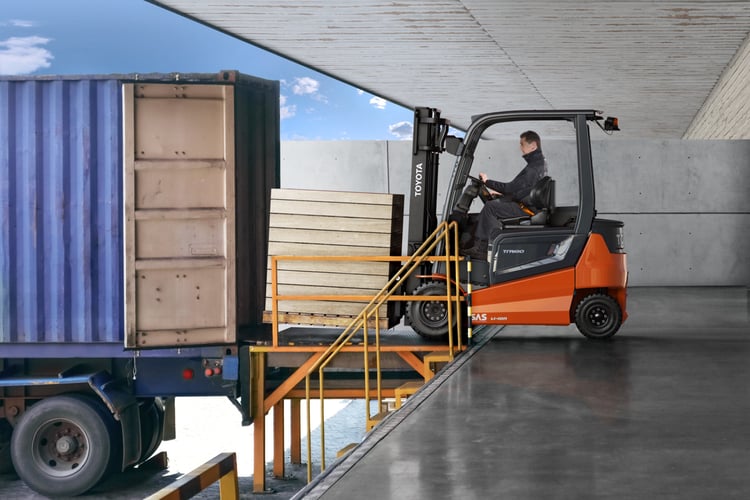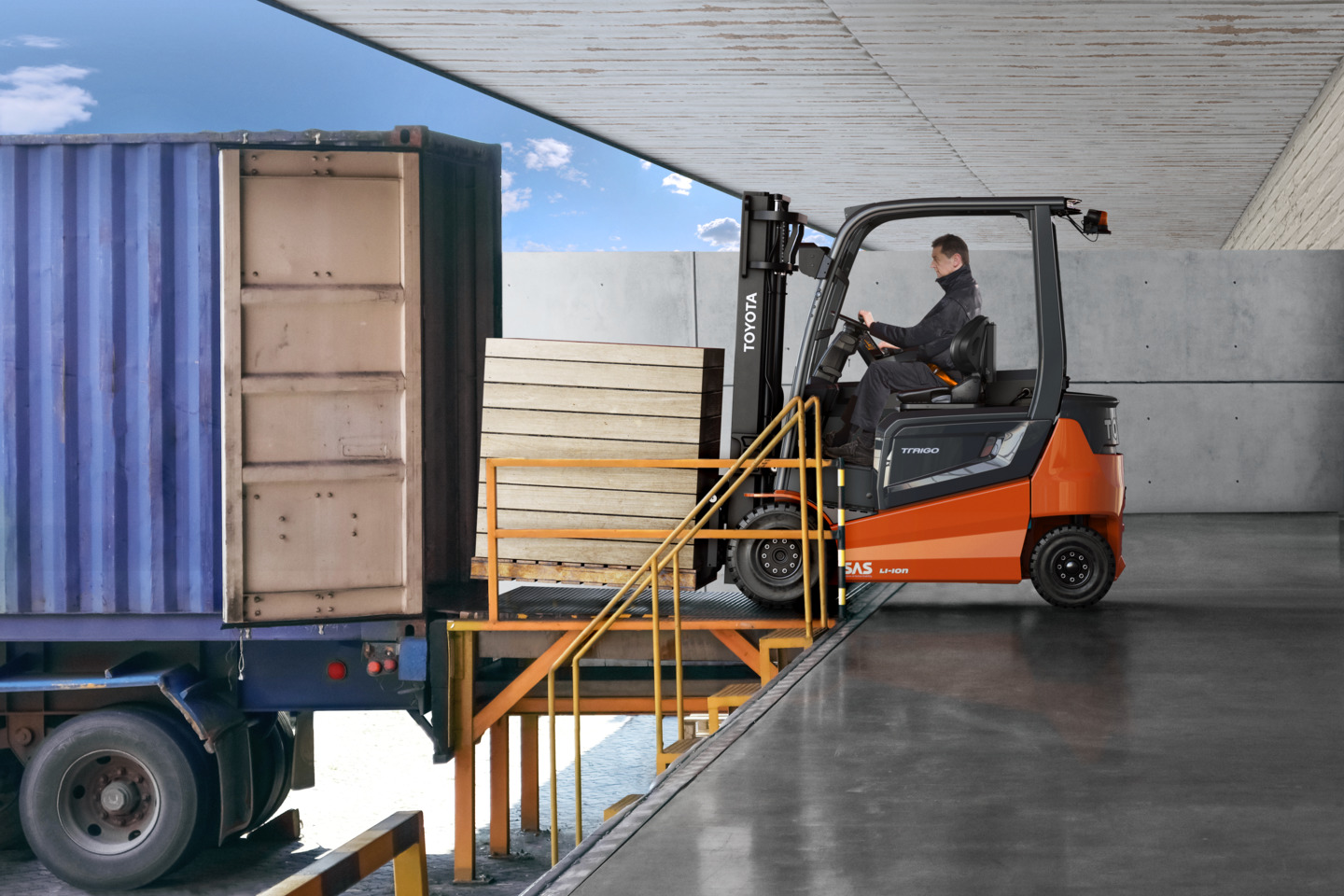For manufacturers looking to upgrade their forklift truck fleet, there are several criteria to consider, not least the power train. In the past, internal combustion (IC) power was the default, but in recent years advances in technology have made electric power a more viable option for many manufacturers.
However, many fleet operators still view electric power with scepticism, citing concerns over range, charge time and general usability. To assuage some of those fears, here's Sam Gray, product development manager at Toyota Material Handling.

Q) What are the benefits of moving from an IC to an electric-powered forklift truck fleet?
A) There are many benefits moving to electric trucks over engine-powered ones, but the first question we ask customers to answer is ‘why’. Each customer will have a variety of reasons or considerations as to why they are contemplating making the shift. These are key for the customer and supplier to understand as not all industries and applications would feel the full benefit of the move. Once they have worked out the reasons why they want to shift to electric, then the journey can begin. The headline reasons for making the shift from IC to electric are:
1. Reducing running costs
2. Safety
3. Environmental benefits.
4. Flexibility of use
5. Fewer maintenance requirements
6. Improving working conditions
Of course, these are just headlines and there are numerous extra reasons why electric may work for you, but these are the key benefits we tell our customers when exploring a shift towards electric fleets.
Q) Are Toyota seeing more interest in electric power? What’s causing this?
At Toyota, we're not only seeing an increased interest on electric counter-balance trucks from customers who are looking to make the shift from IC trucks, but also some of our customers have already made the change. We pride ourselves on being seen as trusted advisors and we make sure that the customer is fully informed on all aspects of the switch to make sure that we add value to their business with the right solution, some might say we challenge ourselves.
The increased interest comes from a variety of reasons, but initially it comes down to running costs and environmental responsibilities,
especially when the Red Diesel tax relief is to be removed as of April 2022, as well as the ongoing concern around the impact of fossil fuel emissions on the planet.
Q) Do customers still suffer from ‘range anxiety’ – worries that their truck will run out of power mid-shift – and are those fears still relevant?
A) We work with our customers to find the right solution, and if there's any anxiety from our customers, we make sure that we cover all the aspects of running the trucks, looking at everything from power requirements to typical run times and shift patterns to make sure that the customer gets the right solution for them.
Being completely honest with the customer also sometimes means that we have to show that currently electric trucks don’t suit their operation, but we don’t stop there, we work with customers to see how we can get the proverbial square peg to fit the round hole. While it might not suit the application at the beginning, if we can find a way to make it work, we do. We also have to be prepared to say ‘No’ to our customers when the peg just won’t fit.
Q) Tell us about Toyota’s range of electric forklift trucks.
A) Currently at Toyota we have a full range of electric counterbalance trucks ranging from 1.0t to 8.0t, all available with lead acid or Lithium-Ion battery solutions. Our ever popular Traigo range has just been updated with some new models, including our new Traigo 80v range trucks 2.0-3.5t which have been specifically designed for the market as it looks to make the shift from IC trucks to electric. The trucks also boast enhanced operator ergonomics, class-leading energy efficiency with a design to work in all applications both indoor and out. This model range of trucks is the fastest-growing market currently outstripping any other. Just a decade ago the IC market far outweighed the electric one, while today sales of electric counterbalance trucks have overtaken the IC market and continue to grow at a fast pace.
Q) What will the future of electric trucks look like?
A) If I gaze into my crystal ball, this for me depends on the market demands and requirements. There’s no point in producing something the market doesn’t require, after all. As technology advances even further in the future, the shape of things to come won’t be defined by the battery as it is today. This will also have an impact on truck design. Already, within the Toyota family of trucks, we have redesigned the Levio range due to cutting-edge lithium-ion technology enabling us to dramatically change the shape of the truck, so with this in mind the future will hold some bold designs.
Of course, at Toyota, we use Kaizen all the time as a key cornerstone of our philosophy, so what we have now will always be looked at to continually improve, as we make the shift to the future.



